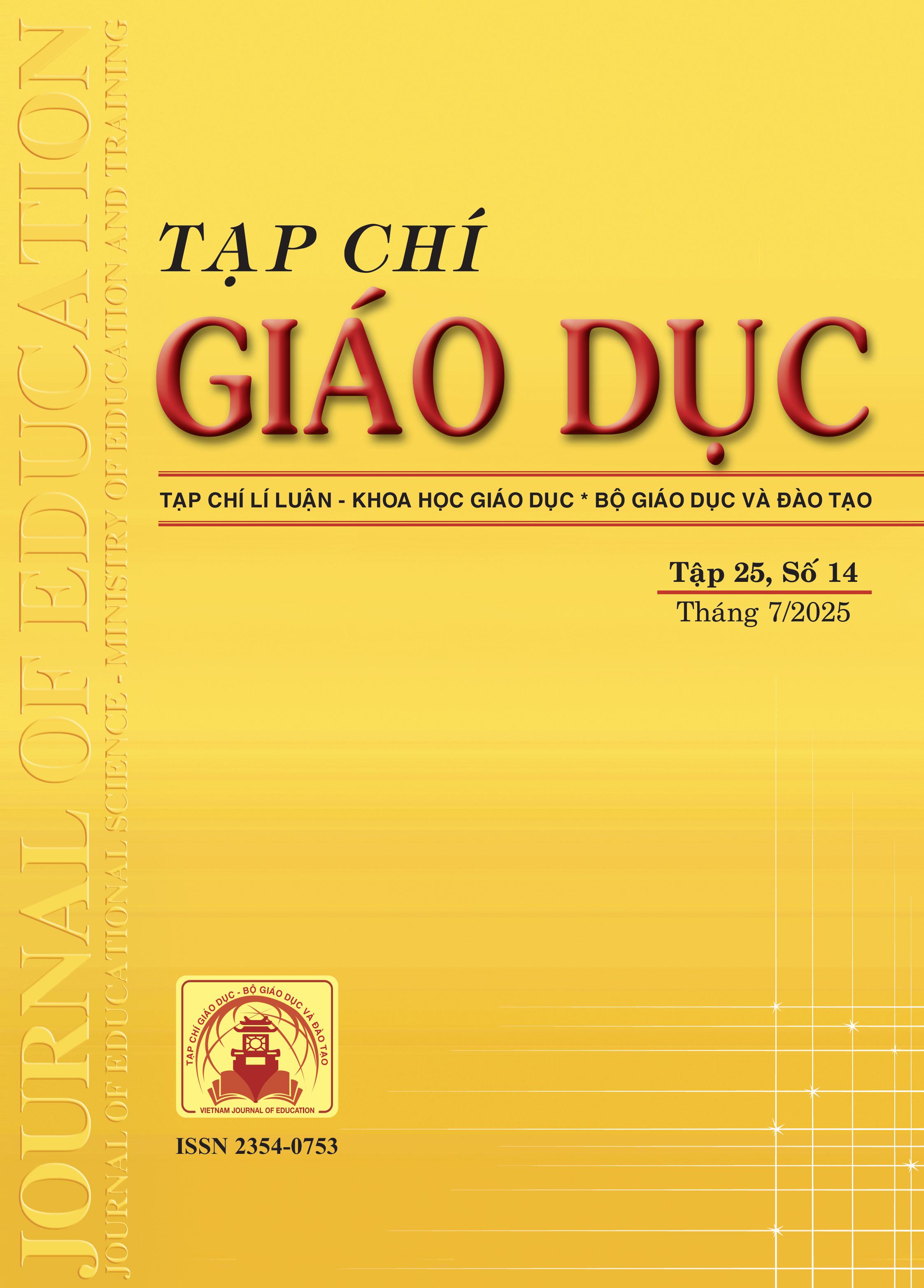Yếu tố ảnh hưởng đến ý định nghỉ việc của giáo viên mầm non: Nghiên cứu tại Nghệ An và Hà Tĩnh
Tóm tắt
This study aims to investigate the factors influencing the intention to resign of preschool teachers in Nghe An and Ha Tinh provinces in the current period. The research employs a mixed-method approach, combining both quantitative and qualitative methods. Data was collected from 1,380 preschool teachers in Nghe An and Ha Tinh using a stratified random sampling technique. The quantitative method is carried out through a questionnaire, designed with 21 items on a 5-point Likert scale to assess the factors influencing the intention to resign of preschool teachers. The qualitative method involves 20 semi-structured interviews to gain deeper insights into the quantitative survey results. The findings indicate that the key factors strongly influencing preschool teachers' intention to resign are: salary and compensation policies; work pressure; and relationships with school administrators and parents. Additionally, factors such as the friendliness of colleagues and working conditions also contribute to motivating preschool teachers to resign. Based on these findings, the paper proposes several recommendations aimed at reducing the intention to resign among preschool teachers.
Tài liệu tham khảo
Atmaca, T. (2020). Examining factors that negatively affect teachers' social dignity and image. Journal of Education for Life, 34(1), 152-167. https://doi.org/10.33308/26674874.2020341165
Cieśliński, R., & Szum, E. (2014). Burned out or just frustrated? Reasons why physical education teachers leave their profession. Physical Culture and Sport. Studies and Research, 63(1), 29-35. https://doi.org/10.2478/pcssr2014-0020
Frank, M., & Pessi, A. B. (2018). Significant Work Is About Self-Realization and Broader Purpose: Defining the Key Dimensions of Meaningful Work. Frontiers in Psychology, 9. https://doi.org/10.3389/fpsyg.2018.00363
Grant, A. A., Jeon, L., & Buettner, C. K. (2019). Relating early childhood teachers’ working conditions and well-being to their turnover intentions. Educational Psychology, 39(3), 294-312. https://doi.org/10.1080/01443410.2018.1543856
Hall-Kenyon, K. M., Bullough, R. V., MacKay, K. L., & Marshall, E. E. (2014). Preschool teacher well-being: A review of the literature. Early Childhood Education Journal, 42(3), 153-162.
Heckman, J., Pinto, R., & Savelyev, P. (2013). Understanding the mechanisms through which an influential early childhood program boosted adult outcomes. The American Economic Review, 103(6), 2052-2086.
Keçeci, B., & Kara, S. B. K. (2023). Why do teachers leave the profession: A case study. International Journal of Educational Research Review, 8(4), 773-787.
Korea Institute of Child Care and Education (KICCE) (2016). Annual report on the status of child care workers in Korea. KICCE.
Latifah, A. (2020). Peran lingkungan dan pola asuh orang tua terhadap pembentukan karakter anak usia dini. Jurnal Pendidikan Raudhatul Athfal, 3(2), 101-112.
Nguyen, T. D., & Springer, M. G. (2021). A conceptual framework of teacher turnover: A systematic review of the empirical international literature and insights from the employee turnover literature. Educational Review, 1-36. https://doi.org/10.1080/00131911.2021.1940103
OECD (2011). Teachers for the 21st century: Using evaluation to improve teaching. OECD Publishing.
Wells, M. B. (2015). Predicting preschool teacher retention and turnover in newly hired Head Start teachers across the first half of the school year. Early Childhood Research Quarterly, 30, 152-159. https://doi.org/10.1016/j.ecresq.2014.10.003
Phạm Minh Hoa, Nguyễn Mạnh Tuấn, Nguyễn Hà Linh (2024). Tổng quan nghiên cứu về các nhân tố ảnh hưởng đến phát triển chuyên môn của giáo viên mầm non. Tạp chí Khoa học, Trường Đại học Thủ đô Hà Nội, 69(4A), 90-99. https://doi.org/10.18173/2354-1075.2024-0083
Zhang, G., & Chayanuvat, A. (2024). Kindergarten teachers’ resilience factors. Rangsit Journal of Educational Studies, 11(1), 55-70.
Zhang, L., & Yu, S. (2017). Early childhood education in China: Teachers’ motivation and career choices. International Journal of Educational Development, 45(2), 102-112.
Tải xuống
Đã Xuất bản
Cách trích dẫn
Số
Chuyên mục
Giấy phép

Tác phẩm này được cấp phép theo Ghi nhận tác giả của Creative Commons Giấy phép quốc tế 4.0 .












